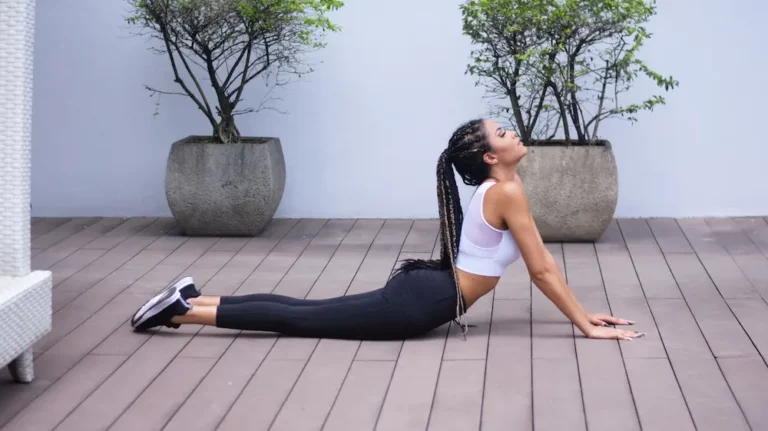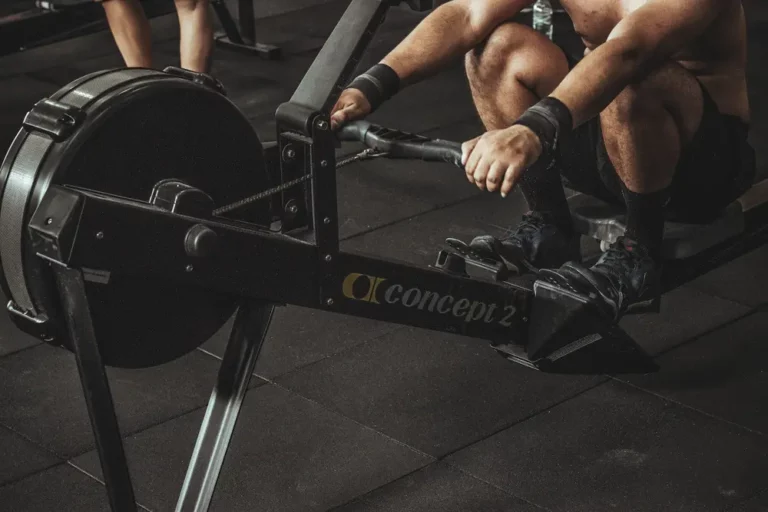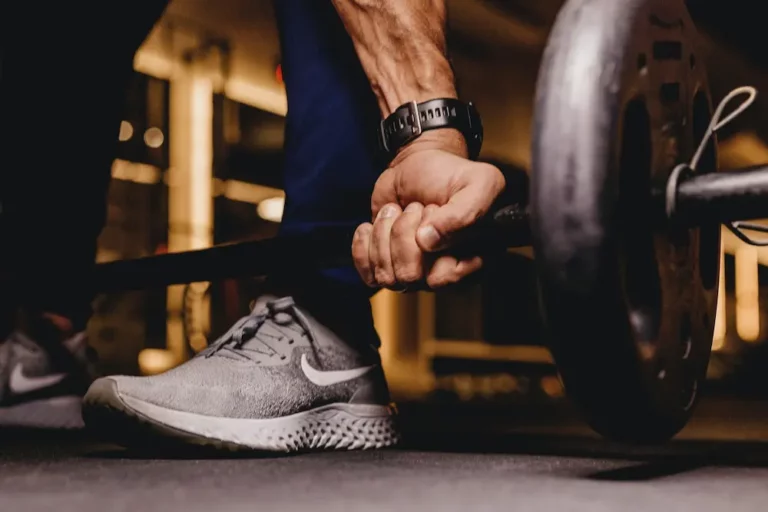How to Prevent Neck Pain from Bench Press: Safe Alternatives
I’ve always thought of the bench press as a staple in my upper body workout, aiming to build strength in my chest, shoulders, and arms. But there’s a sneaky side effect that caught me off guard: neck pain. It’s a bit ironic, isn’t it? You’re there, pushing up weights, feeling strong, and suddenly, your neck decides it wants in on the action – but not in a good way.
At first, I brushed it off as a one-time thing, but when the pain lingered, I knew I had to dig deeper. Turns out, there’s a whole host of reasons why bench pressing can lead to neck discomfort, from the way we move to the muscles we strain. It’s not just about the heavy weights; it’s about how we’re handling them. So, if you’ve ever found yourself rubbing your neck after a bench press session, stick around. We’re about to dive into why this happens and what we can do about it.
Understanding Neck Pain in Bench Press
When I started focusing more on my upper body strength, particularly through bench pressing, I never anticipated that my neck would bear the brunt of the pain. It wasn’t until I woke up with tightness and discomfort that I began to dive deep into why and how bench pressing could affect my neck. Let’s break down the anatomy involved and the common causes leading to this unexpected side effect.
Anatomy of Neck Muscles Affected by Bench Press
One of the key players when it comes to neck pain from bench pressing is a muscle called the sternocleidomastoid. This muscle, which I found stretches from under the ear down the neck to the collarbone, works closely with the chest and shoulder muscles. It’s crucial for head-related motions like nodding or turning the head from side to side. Despite its strength, it’s surprisingly sensitive to the stresses of bench pressing. In my case, straining this muscle resulted in noticeable discomfort, especially when turning my head.
Common Causes of Neck Pain from Bench Pressing
As I delved further into the source of my pain, several culprits emerged:
- Improper Lifting Technique: Samuel Chan, PT, DPT, emphasizes that performing a bench press with improper form is a common cause of post-workout neck pain. This made sense to me, especially when I thought back on my form and realized that it might not have been as spot-on as I believed.
- Abrupt Movements: I learned that not pressing the weight with an even, smooth movement can lead to muscular sprains. It appears that the extreme pressure from lifting heavy, combined with sudden movements, was a recipe for neck strain.
- Overloading the Bar: Trying to set a new personal record by adding more weight than my body could handle was another red flag. It was a stark reminder that my ambitions needed to align with my current capabilities to avoid injury.
These insights have dramatically changed how I approach my bench press routine. Recognizing the intricacies of the sternocleidomastoid and adhering to proper lifting techniques are now top priorities in my workouts.
Common Bench Press Injuries Leading to Neck Pain
When diving into the physical challenges and risks associated with heavy lifting, particularly bench pressing, it’s crucial to understand the impact such activities can have on our necks. Let’s talk about some of the most common injuries that lead to neck pain, how they occur, and ways to potentially prevent them.
Sternocleidomastoid Strain and Injuries
First up, the sternocleidomastoid muscle, often abbreviated as SCM. This muscle plays a key role in the movement of our heads, stretching from behind the ear all the way down to the collarbone. During a bench press, the SCM works in tandem with our shoulder and chest muscles, supporting various head movements such as nodding or looking side to side.
Injury to the SCM can result from improper form during a bench press. Specifically, if I don’t maintain an even, smooth movement throughout the lift, I’m at risk. Let’s say I attempt to press a weight that’s too heavy for me, leading to abrupt movements; this can easily strain or even sprain the SCM due to the unexpected and unnatural pressure exerted on it.
Symptoms of an SCM injury can range from mild discomfort to severe pain, especially when turning the head or attempting similar movements. If the injury is severe, I might even notice swelling around the area or bruising on the skin. Muscle spasms and stiffness are also common, making daily activities, like simply holding up my head, challenging. A lot of people who bench press also tend to experience a lot of shoulder pain due to muscle spasms.
Cervical Spine Strains or Herniated Discs
Moving on to the structure that supports our entire head – the cervical spine. This area of our spine can be extremely vulnerable during weightlifting exercises, especially when the weight isn’t managed correctly.
Improper form, such as pushing my chin too far forward or arching my back excessively, can place undue stress on the cervical spine. Over time, or perhaps even during a single heavy lift, this can lead to a strain in the muscles supporting the spine or, worse, a herniated disc.
A herniated disc occurs when one of the discs between the vertebrae protrudes out of its normal position, potentially pressing on the nerves. This can cause not just neck pain but also numbness or weakness in the arms. The pain can range from a mild ache to a sharp, burning sensation, making it difficult to continue my regular bench press routine.
To avoid these kinds of injuries, it’s crucial to focus on proper form. That means keeping my chin tucked, maintaining a neutral spine, and ensuring the weight I’m lifting is appropriate for my current strength level. Listening to my body and adjusting my workout accordingly can help me avoid these common bench press injuries.
Root Causes of Neck Pain in Bench Press
When I dive into the world of fitness and weightlifting, it’s clear that bench pressing is a staple exercise for many. However, neck pain from bench pressing is a common ailment that can significantly hamper one’s progress and overall well-being. Understanding the root causes and muscles used in bench press is essential for anyone looking to optimize their workout regimen while minimizing the risk of injury. Let’s delve into some of the primary culprits behind neck pain in bench press activities.
Poor Bench Press Form and Technique
First and foremost, improper form and technique during the bench press can lead to a myriad of issues, neck pain being a primary concern. I’ve learned that keeping the proper alignment of the spine, including the cervical region, is crucial. Pushing the head back against the bench, as some suggest, may activate certain reflexes but at the risk of straining neck muscles and joints. It’s vital to maintain a neutral neck and spine position throughout the lift. This means the eyes should stare straight up, not forward or at an angle, and the neck should not bear undue pressure.
Tension in Neck Muscles During Exercise
Another factor contributing to neck pain is the unnecessary tension in the neck muscles during a bench press. I’ve found that many individuals, myself included, at one point, unknowingly tense their neck muscles as they push the weight upwards. This tension not only diverts energy that could be used in executing the lift but also puts significant strain on the neck. The key here is to focus on relaxing these muscles, concentrating effort on the pectorals, shoulders, and arms, which are the primary movers in the exercise.
Overtraining and Lack of Adequate Warm-Up
Overtraining and skipping the all-important warm-up are also major culprits. I can’t stress enough the importance of giving your body time to recover between intense bench press sessions. Without adequate rest, muscles, including those in the neck, can become overstrained and more susceptible to injury. Similarly, jumping straight into heavy lifting without a proper warm-up can shock the muscles, including the neck, leading to pain and discomfort. I’ve learned that incorporating gentle stretching and a gradual build-up in weight can remarkably reduce the risk of neck pain.
Addressing and Fixing Neck Pain Issues
Dealing with neck pain from bench pressing can feel like a huge setback, especially when all I want is to make gains without injuries. But here’s the thing – with the right approach, it’s absolutely possible to tackle this problem head-on. Let’s dive into some strategies that worked wonders for me.
Improving Bench Press Form
First and foremost, improving my bench press form made a significant difference. I learned that keeping my neck and spine in a neutral position, rather than arching or straining, minimizes the risk of injuring my sternocleidomastoid muscle. Focusing on a smooth, even movement of the bar and avoiding jerky motions has been key to reducing strain.
Incorporating Neck Stretches in Warm-Up Routine
I can’t stress enough how incorporating neck stretches into my warm-up routine has been a game-changer. Gentle stretching before hitting the bench has helped me prepare my neck muscles for the workout ahead, significantly reducing post-workout pain. It’s a simple fix that has had a big impact.
Strengthening Chest and Shoulder Muscles
Stronger chest and shoulder muscles support my bench press, which, in turn, lessens the load on my neck. I’ve added exercises like push-ups, dumbbell flies, and shoulder presses to my routine, which has not only improved my bench press but also contributed to an overall balance in muscle strength.
Adjusting Weights and Repetitions
I had to swallow my pride and realize that sometimes, less is more. Adjusting the weights and focusing on the proper technique rather than hitting personal records every session has made a huge difference. It’s better to progress gradually and avoid injuries than to rush and suffer setbacks.
Engaging Back Muscles During Bench Press
Another pivotal adjustment I made was to engage my back muscles while bench pressing. This involves pinching my shoulder blades together and slightly arching my upper back, creating a firmer base. This technique not only bolstered my press but also alleviated unnecessary neck tension.
Consulting Medical Professionals for Persistent Pain
Lastly, for those moments when the pain just wouldn’t budge, seeking medical advice was crucial. Consulting a physical therapist provided me with personalized exercises and tips that were specifically tailored to my condition, ensuring I could continue to bench press without jeopardizing my health.
Alternative Exercises to Avoid Neck Pain
When it comes to avoiding neck pain while still getting a good chest workout, switching up your routine can be a game-changer. Here are some alternative exercises that I’ve found effective for working out my chest without putting undue strain on my neck.
Incline Dumbbell Press
Starting with the incline dumbbell press this exercise allows for a more natural range of motion compared to the flat bench press. By adjusting the incline, you can target different parts of your chest while minimizing the risk of neck strain. I make sure the bench is set at a 30 to 45-degree incline, ensuring that my neck remains in a neutral position throughout the movement. This slight adjustment significantly reduces the pressure on my sternocleidomastoid and other neck muscles.
Cable Flys
Cable flys are next on my list. This exercise requires a cable machine and allows for a wide range of motion, which is excellent for chest development. Unlike the bench press, cable flys let my hands travel in a more controlled manner, which helps keep my neck relaxed and aligned. The constant tension from the cables also provides a unique challenge to the chest muscles, contributing to overall chest development without compromising neck safety.
Push-Ups and Variations
Don’t underestimate the power of push-ups and their variations. Not only are they convenient, requiring no equipment, but they also offer a full-body workout. To protect my neck, I focus on maintaining a strong, straight line from my head to my heels, avoiding letting my head drop or my back sag. Incorporating variations like diamond push-ups or archer push-ups allows me to target my chest from different angles while keeping my neck secure.
Dumbbell Overhead Press
Moving onto the shoulders, the dumbbell overhead press is a fantastic alternative that benefits the upper chest and shoulders without overloading the neck. I’m particularly careful to start with a weight that allows me to maintain proper form—a neutral grip and elbows slightly in front of my body. This setup helps in preventing unnecessary neck extension or flexion.
Machine Bench Press
Lastly, the machine bench press can be a safer alternative for those struggling with neck pain. The machine guides the movement, reducing the need for stabilizing muscles, which often compensates incorrectly and leads to neck strain. When I use the machine, I make sure my back is firmly against the seat and my feet are planted on the ground, creating a stable base that prevents me from straining my neck.
Conclusion
I’ve shared some great alternatives to the traditional bench press that can help you avoid neck pain while still smashing your chest and shoulder goals. Remember, adjusting your workout routine and paying close attention to form is key to keeping your neck safe. Don’t let neck pain bench you from your workouts. Instead, try incorporating these exercises into your routine. Your neck—and your gains—will thank you. Let’s keep pushing for strength without the strain!
FAQ – Frequently Asked Questions
How do I protect my neck during bench press?
To protect your neck during a bench press, ensure your back muscles are relaxed and breathe evenly throughout the exercise. Tilt your head gently from one shoulder to another, pausing in a neutral position in between. Maintaining proper posture throughout the exercise can also significantly reduce the strain on your neck muscles.
How do you get rid of neck pain ASAP?
To quickly alleviate neck pain, apply heat or ice to the affected area, take over-the-counter pain relievers, and gently stretch your neck, avoiding abrupt movements. Consulting a physical therapist, considering chiropractic care, booking a massage, trying acupuncture, and limiting activities that exacerbate your neck pain are also effective strategies.
Can bench press cause a pinched nerve?
Yes, bench pressing and other weightlifting exercises, especially those involving overhead lifting, deadlifts, back squats, or general presses, can put significant strain on tendons and nerves. This makes it more likely to experience a pinched nerve due to increased pressure and strain during these activities.







